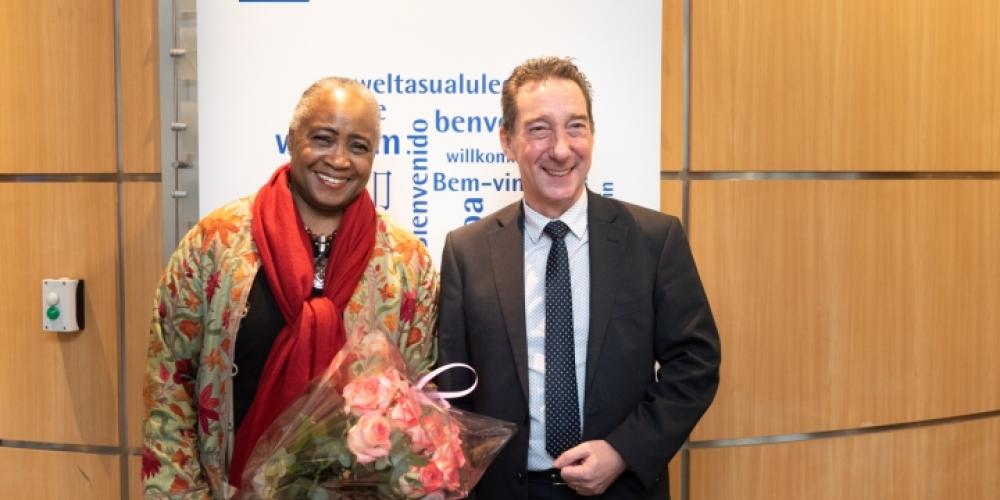
In 2015, VUB launched a programme for refugee students. It was the first Belgian university to do so. In addition to its general support for refugee students, VUB also offers an introductory pathway for 20 students called InClusive AcadeMic Programme for University Students (InCAMPUS programme). This preparatory path for refugee students gives them the opportunity to develop their language and academic skills, helping them to enrol, give psychological support and put them on the road to success in their academic programme. In 2016, VUB also launched an Arabic language course project for children aged 6 to 15 in Brussels. This is the first secular Arabic language course in Belgium under the academic supervision of Arabic language specialists and experts. The teachers are refugees with a teacher training background. The project is called ALEF (in reference to the first letter of the Arabic alphabet) and the first school books will soon be published under this name.
VUB is very active in the area of human rights, academic freedom and social engagement, values which are part of the university’s founding principles. In 2011, VUB joined the Scholars at Risk (SAR) network and is working to protect researchers at risk and promote academic freedom. VUB also collaborates with ICORN through Passa Porta in the protection of writers.
Ms Hendricks’ visit is highly valued by VUB, as it helps raise the profile of the issue at hand: providing education for refugees and displaced people, and giving protection to researchers and academics at risk across the world.
She explained what prompted her to focus on this topic all these years ago: “I am as old as the Universal Declaration of Human Rights, and I feel strongly connected to its values. It means I can be a citizen of the world and everyone is a member of my family. When I started doing this work for the UNHCR I became very inspired. Inspired by my colleagues on the ground who give so much, but also inspired by the refugees themselves, particularly the women. Their courage, their dignity makes it possible for me when I watch the news and feel despondent to say to myself, ‘no, I cannot give up, because they do not give up’. When I started doing this work the refugee cause attached itself to me, and it hasn’t left me. I will carry this until the end.”
When asked what she thought of the VUB’s programmes for and with refugees, she said: “I smile. Listening to these young refugee students and the change in their lives thanks to the opportunities they’ve been given… We know that there will be three more vital and productive citizens wherever they end up, because of the experience they received here, and that can only make me smile and make me happy.”
Her humanitarian commitment goes deep and in 1998 she founded the Barbara Hendricks Foundation for Peace and Reconciliation. She also sits on the advisory board of RET International, the non-profit organisation aimed at protecting those who are vulnerable through education.